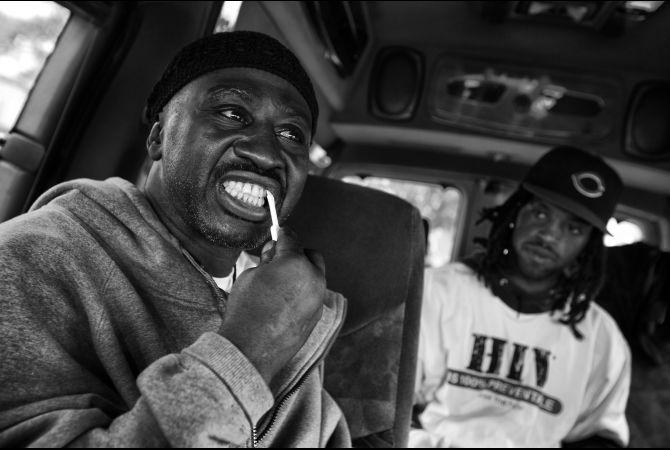Turning Point: A dying friend’s idea for fighting HIV/AIDS
A man takes a saliva swab inside an HIV testing van. Outside the van, a group of about ten others are waiting to be tested. The rapid test consists of a quick oral swab that takes 20 minutes to process a result.
WASHINGTON — She watched five of her closest friends die, all of them gay men, of AIDS in the late 1980s and early 1990s. For A. Toni Young each of them was a profound loss, but it was her best friend Steven’s question in the last days of his life that would change the direction of hers.
“He asked me, ‘What if this was you?’” remembered Young. “I was like, ‘Don’t do this to me. I don’t want to have this on my conscience. I just want my hamburger job and kind of be done with it‘ — but it wasn’t.”
In the late 1980s, HIV was still thought of as a gay man’s disease and resources almost exclusively supported infected white men. Despite his frail state, Steven, who was white, had assistance. But women and people of color had little or close to nothing of such help. Steven thought Young should do something about it.
Young took her friend’s suggestion to heart and, with no formal training, started the Community Education Group (CEG) in Ward 7, just east of the Anacostia neighborhood of Washington, DC.
“It’s a community I’m from. Ward 7 and 8 (Anacostia) are 97 and 98 percent African-American. It is a community rot with a lot of health disparities. HIV is one of many. But what people don’t understand is people who live east of the river have a real commitment to east of the river. We have a resilience.”
In its early days, Young and a staff of five started out by distributing condoms in the neighborhood. Today, with 25 outreach workers and eight mobile testing units providing tests and referrals to clinics, it has become one of the most respected community-based organizations in the city.
“Toni really flipped things around when it came to linking patients to care,” said Dr. Shannon Hader, who served as director of the District’s HIV/AIDS, Hepatitis, STD, and TB Administration (HAHSTA) from 2007 until 2010.
A. Toni Young |
When Young can escape the daily blitz of telephone calls and meetings that consume her days, she takes the time to stroll down one of the busy hallways to tease her team with a little humor. On this day, it’s Alan Viars, who is putting the final touches on the software that will go into a new tablet application — the newest tool for CEG’s outreach team.
“Hey white boy, what have you got for me today?” asked Young, with the straight face of a veteran comedian.
Viars, accustomed to her shenanigans, just grins and carries on. Their work involves fighting a deadly epidemic, but no one here takes themselves too seriously, especially Young.
This spring, 10 students — all recently released ex-offenders or individuals with histories of substance abuse — were in class in the back part of the building listening to an instructor teach them how to conduct rapid HIV tests as part of.CHAMPS, a job-training program Young started a few years ago. It teaches community members how to do HIV outreach and testing. Almost all of Community Education Group’s staff graduated from the program.
Young keeps her focus on fighting AIDS in her community. Even though she began with no special training, Young is well-known at the Center for Disease Control, has been a contributor to public health journals and a guest at the White House. She attributes it all to Steven.
“He used to always tell me, ‘Girl walk in that room like you own it,'" remembered Young. “It doesn’t matter that you don’t have two nickels to rub together. Walk in there like you own that room and you’ll come out with something.”
GlobalPost's reporting on global heath is made possible in part through a partnership with the Henry J. Kaiser Family Foundation as part of its U.S. Global Health Policy program.
This story is presented by The GroundTruth Project.
